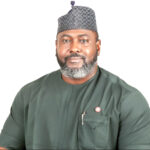The Nigerian Economic Summit Group, (NESG) and other stakeholders in the educational sector have called for a comprehensive strategy as only about 36 per cent of educational institutions have access to digital learning.
They made the call at a pre-summit webinar ahead of the 30th Nigerian Economic Summit webinar, themed ‘Closing Gaps and Adapting to New Economic Conditions’, targeted at developing actionable policies and measures that will address both immediate and long-term challenges in the sector.
In her opening remarks, NESG Board Member, Ms. Wonu Adetayo, highlighted that Nigeria’s literacy rate stood at 62 per cent, with significant disparities between urban and rural areas.
“The nation’s education sector faces substantial gaps, particularly in eliminating barriers to completing primary education, which is at 35 per cent in rural areas compared to 80 per cent in urban areas.
- Liverpool sign Juventus star, Chiesa
- APC: We’ll adopt digital register for campaign effectiveness, governance
“Also, the digital divide must be addressed. Only 36 per cent of schools have access to digital learning, and there are still challenges related to inadequate teacher training and infrastructural deficits. Closing these gaps is essential for building an inclusive and competitive education system, which could boost Nigeria’s GDP by 10 per cent,” she said.
Similarly, Professor Bolanle Ogunbamila, Head of the Secretariat at NESG’s Triple Helix Roundtable, shared insights on fostering effective collaboration between industry, academia, and government to address the skills gap and drive innovation.
Dr Modupe Adefeso Olateju, Founder of The Education Partnership (TEP), presented evidence-based policy recommendations for closing the skills, noting that about 18.3 million children were out of school from the primary to senior secondary levels.
“A study by the TEP Centre in 2018 found that 55 per cent of children in JSS3 can only read at the level of a child in Primary 2,” Olateju added.

 Join Daily Trust WhatsApp Community For Quick Access To News and Happenings Around You.
Join Daily Trust WhatsApp Community For Quick Access To News and Happenings Around You.


